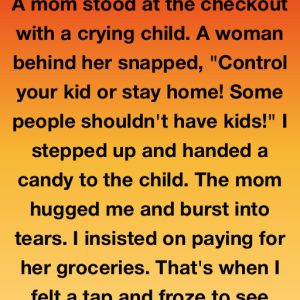When the narrator was twelve, her life suddenly changed when her father lost his job. Once a stable and comfortable home quickly became one filled with quiet stress and uncertainty. Her mother carried a constant sadness, and financial struggles crept into every corner of their lives. At school, the narrator’s hunger and embarrassment grew—she sat silently during lunch with only a bottle of water, trying to hide how much her life had changed.
Then something unexpected began to happen. She started finding small meals in her backpack—first a warm pie, then an apple, then a sandwich. These quiet, anonymous gifts became a lifeline. Though no one said anything, and she never asked, they brought her a sense of comfort. In a time when everything felt broken, these small gestures reminded her she wasn’t invisible.
One day, a classmate named Joy invited her over for dinner. The narrator hesitated, feeling ashamed of her situation, but Joy’s kindness eventually convinced her. That evening, she walked into a warm home full of laughter and kindness—something she hadn’t felt in a long time. Everything felt welcoming and safe.
When Joy’s mom placed a pie on the dinner table—the same kind the narrator had been receiving—everything made sense. She whispered, “It was you,” and Joy’s mom simply replied, “I didn’t want you to go hungry.” In that moment, the narrator was overwhelmed by the quiet generosity and love that had carried her through difficult months.
This act of kindness became a turning point in her life. She realized that compassion doesn’t need to be loud or praised—it just needs to be real. That one dinner taught her a lifelong lesson about empathy and community.
Years later, she pays it forward. Because sometimes, the smallest acts—like a pie in a backpack—are the ones that save us.





